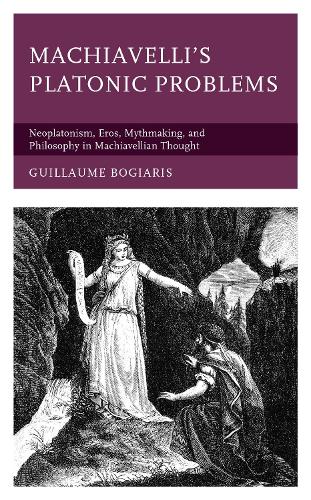
Machiavelli's Platonic Problems: Neoplatonism, Eros, Mythmaking, and Philosophy in Machiavellian Thought
(Hardback)
Available Formats
Publishing Details
Machiavelli's Platonic Problems: Neoplatonism, Eros, Mythmaking, and Philosophy in Machiavellian Thought
By (Author) Guillaume Bogiaris
Bloomsbury Publishing PLC
Lexington Books
28th January 2021
United States
Classifications
Professional and Scholarly
Non Fiction
Politics and government
320.1092
Physical Properties
Hardback
138
Width 161mm, Height 229mm, Spine 18mm
381g
Description
Machiavelli is traditionally understood has a thinker who rejected Platonism in bulk. This book argues that even if it is correct to describe him as unsympathetic to Platonic thought, his philosophy addresses it in a deep and nuanced manner. In order to see this, one must first disentangle Machiavellis conversation with Plato from his criticism of Christian Florentine Neoplatonism. Once this is done, Machiavellis work reveals itself to engage key Platonic themes, such as love, the place of philosophical education in politics, and the relationship between policymaking and mythmaking. This engagement helps us further characterize and clarify essential concepts and axioms of Machiavellian thought, such as fortna, virtue, the importance of self-reliance, and the proper sources of political knowledge.
Reviews
"Bogiaris addresses an important and underrepresented area of Machiavelli studies, offering a compelling picture of Machiavelli's engagement with Greek thought, including a number of helpful insights."
--Bill Parsons, Duke Kunshan University"Bogiaris' enjoyable book offers a compelling and succinct account of the contentious interpretation that Machiavelli's 'effectual truth' aimed to destroy the Renaissance Neoplatonism's Plato, but not Plato's political philosophy in general. It is grounded in primary sources and in careful dialogue with the wide world of Machiavellian scholarship. Highly recommended."
--Jarrett A. Carty, Concordia UniversityAuthor Bio
Guillaume Bogiaris is assistant professor of political science and philosophy at the University of West Alabama.
